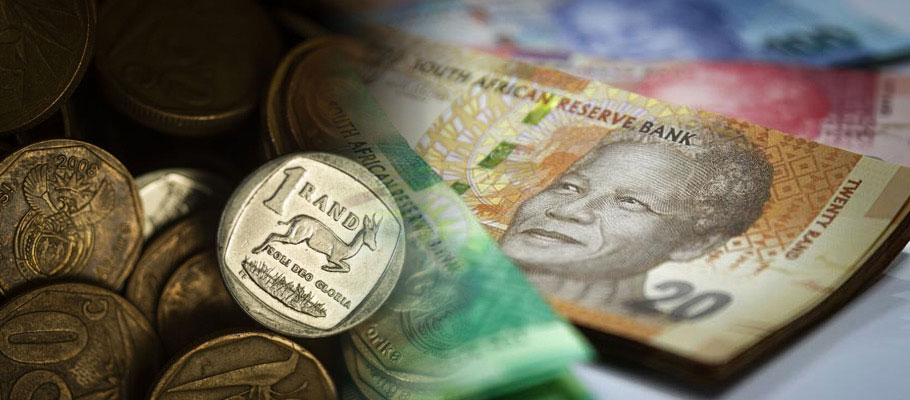
Published: June 19th, 2024
After a fortnight of intense negotiations, the optimal political scenario for the South African Rand has now been confirmed. The African National Congress (ANC) has agreed a deal with the Democratic Alliance (DA) and Inkhata Freedom Parties to cooperate in a national unity government.
In a statement, the ANC, previously the governing party before a national poll dramatically reduced its seat count, said it had ‘agreed to shift towards the center.’
An analyst note from Capital Economics in Cape Town said 'anticipation that the coalition deal would happen had already delivered gains for the Rand in recent days, pushing it up by another 0.4 per cent against the dollar.’
Investors were relieved to see the ANC distance itself from the far-left EEF party, Capital analysts said, which refused to work with any other party. This avoided negative tail-risk for the Rand to set in. The MK Party recently launched by former President Jacob Zuma also proved too radical for the ANC.
The GBP/ZAR rate was 23.33 at time of writing and had dropped close to 4.0 per cent from highs reached in the immediate and uncertain outcome of the election, which saw the ANC fail to gain an outright majority for the first time since 1994.
The USD/ZAR rate was 18.37 at time of writing, 3.0 per cent lower than the post-election peak. EUR/ZAR was 19.64, or 5.0 per cent lower.
Capital said Rand would be higher across the board if not for a decline in global risk sentiment caused by last week’s EU election result and rising political uncertainty in France.
Prior to the election, a report from Investec, the South African investment and commercial banking firm, said speculation about potential outcomes and no clear lead for any political party in recent polling, had been broadly negative for the Rand.
‘A sense of coming political turmoil has grown steadily this year in advance of the national elections, as the major parties aim to fire up their respective voter bases for support,’ says the report. 'Polls have differed widely, with swings for and then against each party as election day inches closer.’
Macro drivers are also impacting ZAR’s prospects. Compared to other emerging market currencies, Rand has struggled in the early months of 2024 against headwinds caused by dimming expectations for interest rate cuts by the US Fed. The knock-on effects of recent Fed policy signals suggest that the cost of money around the world won't fall as quickly as consensus had expected.
This hinders the potential for global economic growth, and growth-sensitive currencies like ZAR feel the pinch first.
While the big picture is influencing performance, Investec says the Rand's current undervaluation is increasingly driven by domestic factors.
The growing uncertainty about South Africa's election outcome has chilled demand for the country’s currency.
‘Political instability is having a predictably negative effect, with support for the ruling ANC in steady decline and a new political landscape emerging.’ Uncertainty about what the future composition of government will be is having a chilling effect on forex traders.
While the exact date of the vote hasn't been announced, South Africa’s constitution dictates that it must occur between 21st May and 19th August of this year, with President Cyril Ramaphosa set to announce the date later in February.
In November 2022, Rand was one of the G20 grouping’s worst performers while G10 major Sterling was near the top. The divergence drove a 12 per cent rally for GBP/ZAR from lows seen in late September of that year, erasing most of 2022’s earlier losses for the pair.
The period of underperformance for Rand happened during another strong month for the US Dollar and a period of abnormal weakness for China's Renminbi. Rand’s descent may have also been aggravated by domestic data that showed manufacturing to be the only sector bright spot in an otherwise slowing South African economy.
Analysts said the real drivers behind GBP/ZAR price action were Sterling recovery and Dollar rally, both of which had stalled.
An analyst note from RBC Capital Markets said that GBP/ZAR typically correlates to USD/ZAR, meaning it would normally benefit if the latter hit new highs. The Dollar outlook for the remainder of 2022 hinged on how investors interpreted announcements coming put of year-end meetings of the US Federal Reserve.
‘Without updated forecasts for guidance, the Fed’s comment on the economy (will) likely to be nuanced, with investors looking for signals that a more dovish approach to rates is in the offing. That sort of scenario could give USD/ZAR space for relief, and an environment conducive to long positions.’
While USD exchange rates had been on the rise for much of 2022, speculation in late October about a potentially 'dovish' turn in Fed policy led to widespread dollar selling. A resurgence in USD selling over the coming days left GBP/ZAR ‘teetering on the edge,’ RBC said.
While ZAR fell back in late 2022, at mid-year it was on the rise. Rosier-than-expected economic data released in June 2022 saw the Rand notch up significant gains over most of its emerging market peers, returning it to positive territory and even briefly topping the G20 league table.
In a note to investors, Investec wrote that 'the upbeat GDP figures for the first quarter of 2022 have piled on more pressure for higher South African interest rates. A 50 basis-points hike at the SARB’s July policy meeting appears more likely now than a 25 basis-points rise’.
Investec also said that ZAR had benefited in 2022 from rising global commodity prices. When blended with a stable domestic economy, the two factors combined to give offshore investors healthy returns. They did warn, however, that higher oil prices would keep the Rand under pressure, particularly if subsequent economic data showed slowing GDP growth.